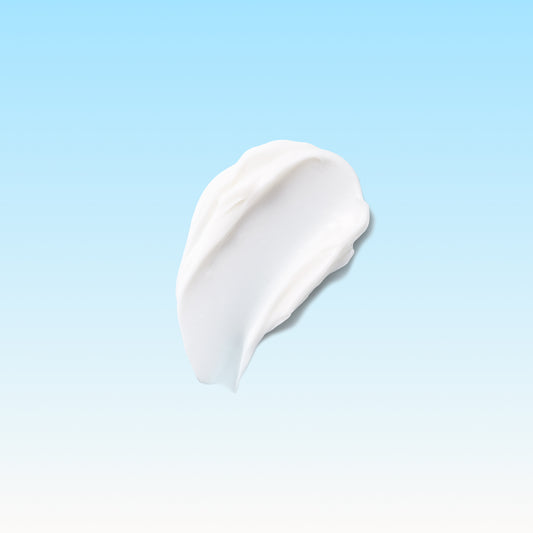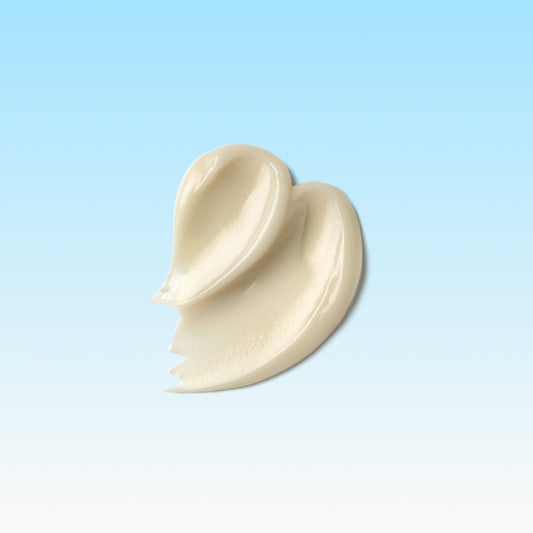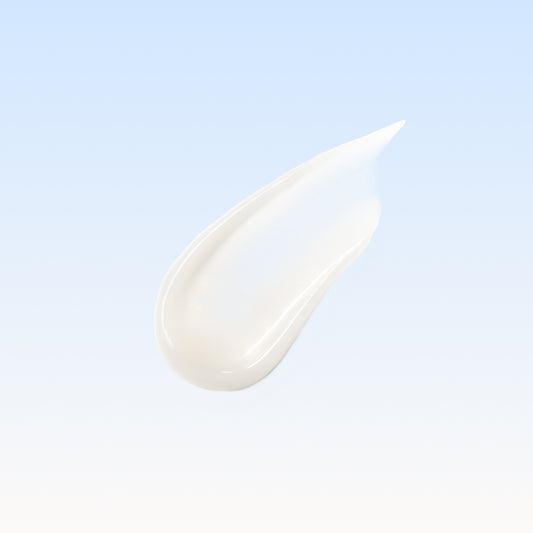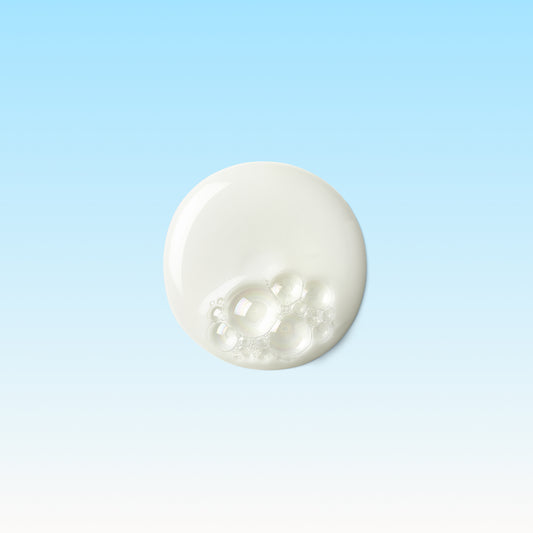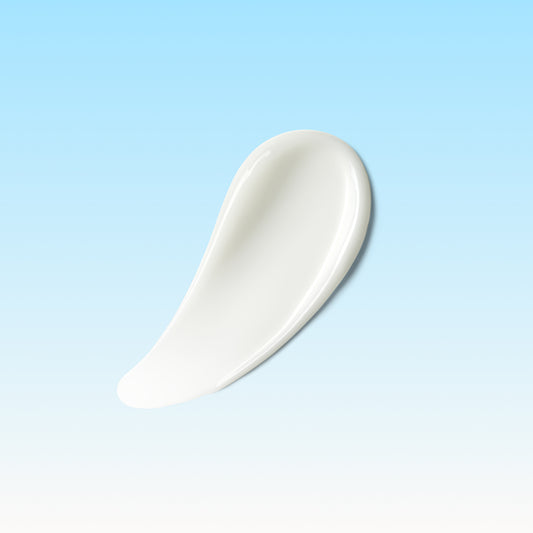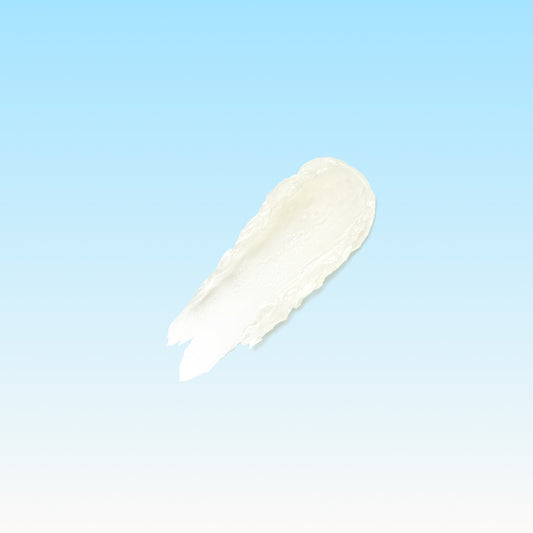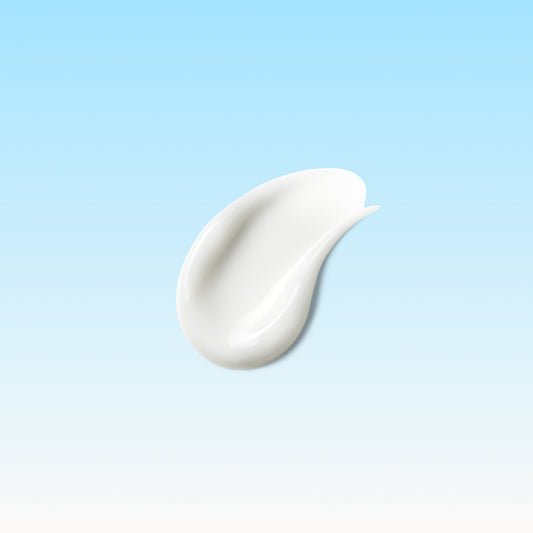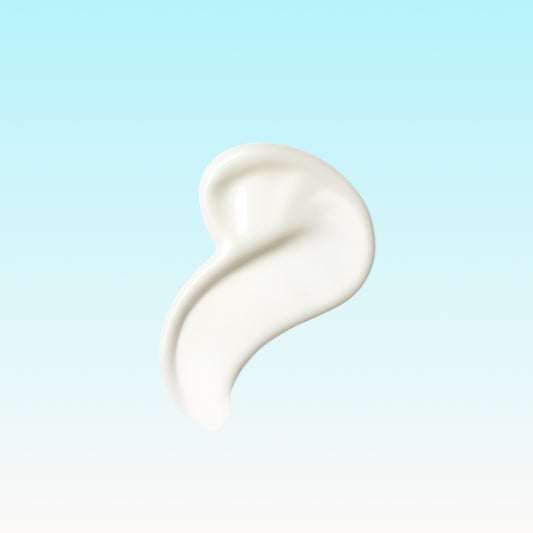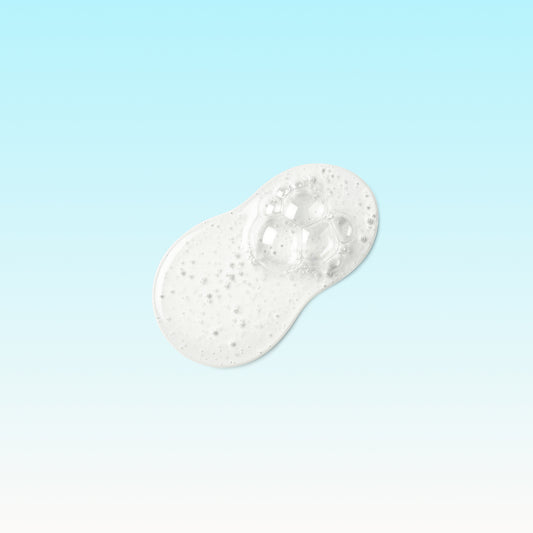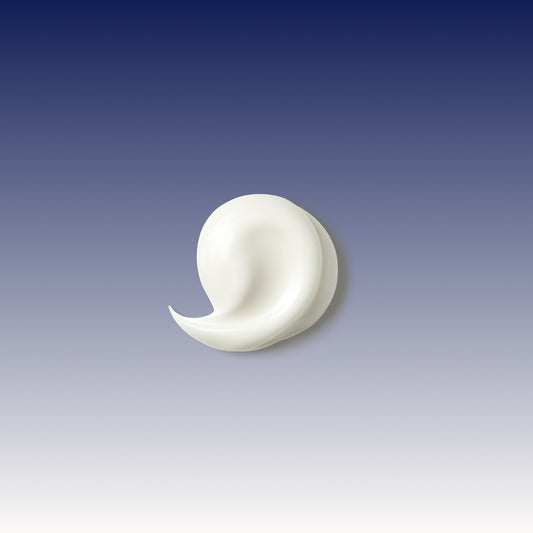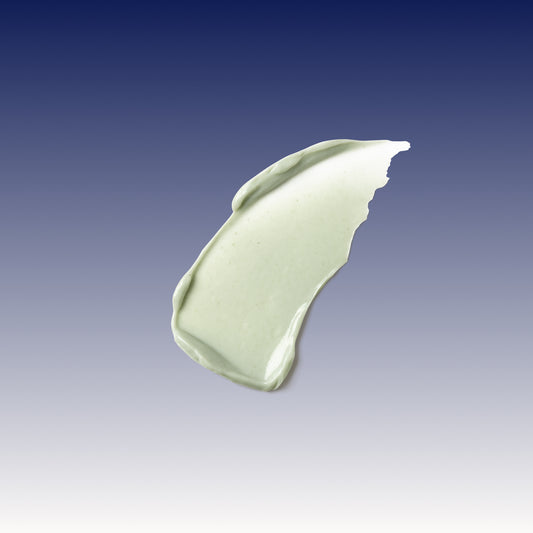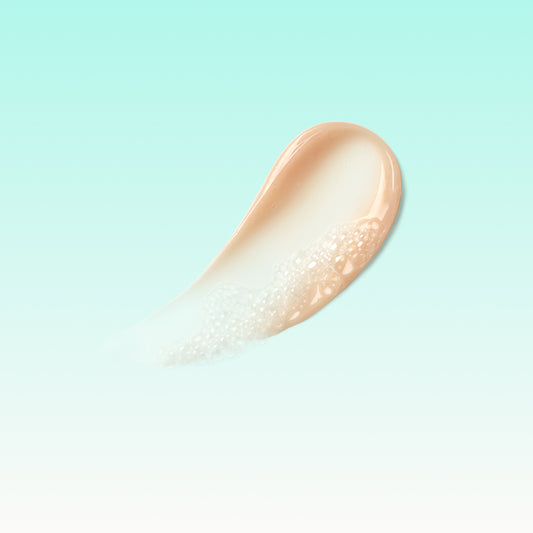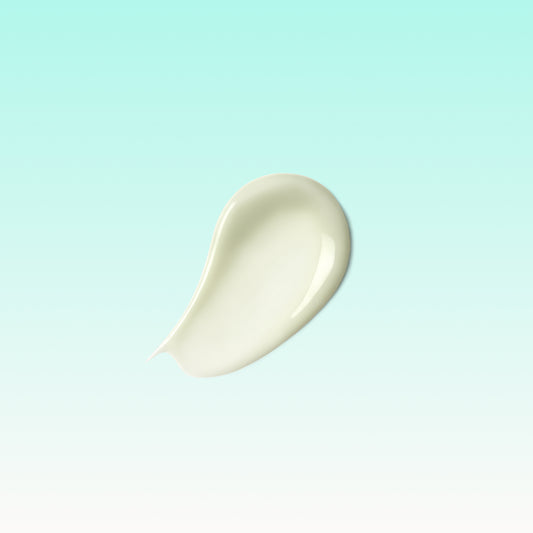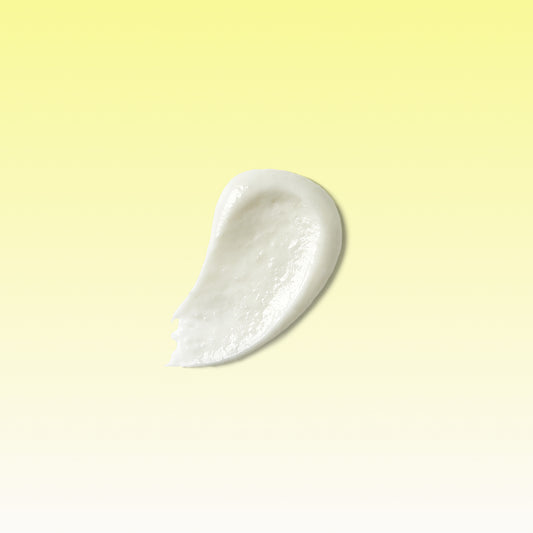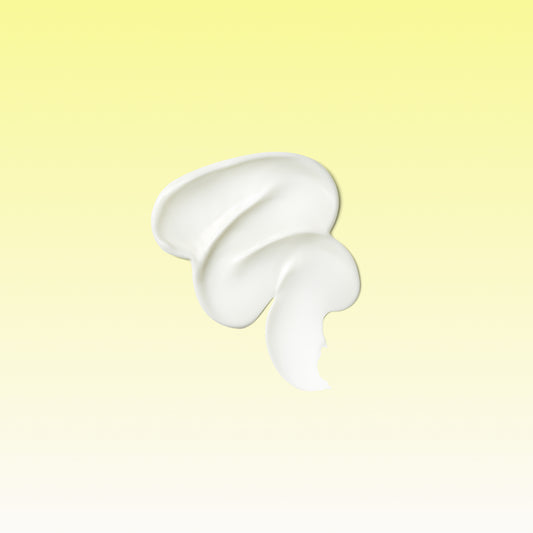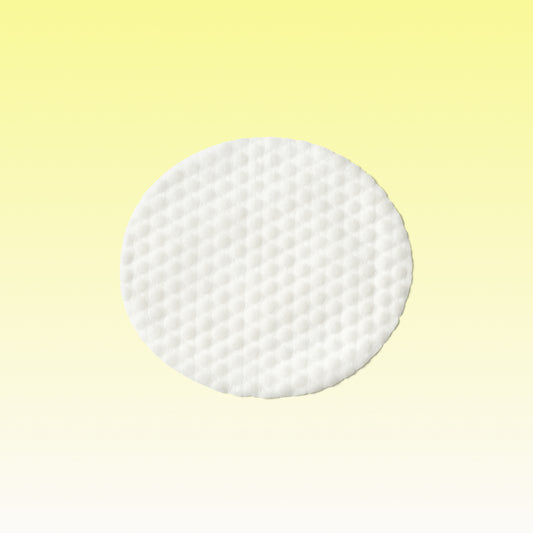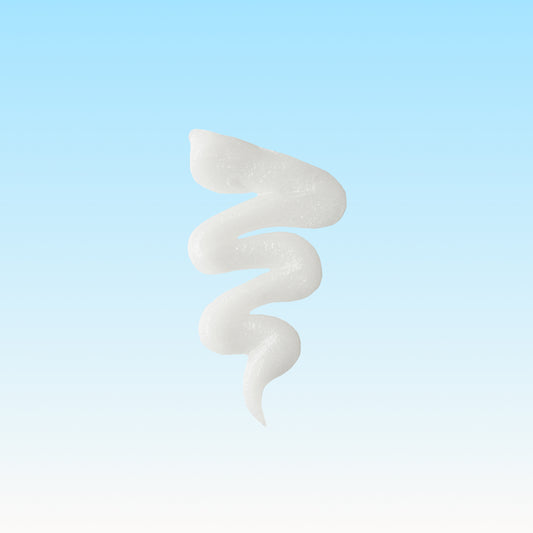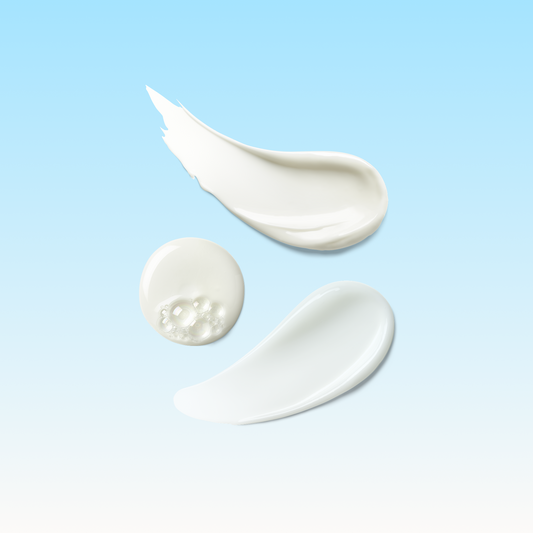S1:E2 Anti-Inflammation Boot Camp With Dr. Nicolas Perricone
[Amy Risley] Total Skin Nerds is brought to you by Skinfix. We're clean, clinically active, and on a mission to help heal your skin.
Welcome to Total Skin Nerds. I'm Amy Risley, the CEO of Skinfix, and a first rate skin nerd myself. On this episode, my guest is Dr. Nicholas Perricone, a board-certified dermatologist, a nutrition specialist, and best-selling author of a number of books about anti-aging and achieving clear, wrinkle-free skin. Dr. Perricone is an icon, a fighter, a kind of prophet, really, for seeing and proving connections between skin and diet in ways that were previously considered nonsense.
He's also a pioneer in discovering and solving dermatological issues related to inflammation. That huge discovery will be our main area of focus today. Even though Dr. Perricone is best known for his books and his product line, he's a scientist at heart. As you're about to hear, he practices like one, and he talks like one, too. Our interview is pretty dense with science, but I also think it's extremely helpful, as Dr. Perricone tells a far deeper and more research-based story about the anti-inflammation movement than most practitioners can. He's also working on something new that he thinks might change your life. Stick with me, nerds, don't go away.
[Amy Risley] We're here today on Total Skin Nerds with Dr. Nicholas Perricone, who we're all sort of fangirling about having him here today, because he is really an exceptional, exceptional pioneer in the medical field, in the nutritional field, and the skincare field, and we're so excited to have you. One of the quotes that I read is that one of your professors said to you at one point, "You can spot a pioneer by the arrows in his back."
[Dr. Nicholas Perricone] Well, first of all, thank you for inviting me here.
[Amy Risley] You're welcome.
[Dr. Nicholas Perricone] It's really exciting to be talking to you, and all the listeners that will access this. It really started for me as a medical student. I was looking under the microscope. There's a course we have to take, it's called histopathology. And so, it looks at disease processes under a microscope. So, greatly magnified. Then of course, there's the clinical side of it, seeing patients, and just looking at them, looking at symptoms, and lab results.
I was looking at this squamous cell cancer, this tumor, and there was a lot of inflammation around the neoplasm. The way we stain tissue when we're looking at samples, the inflammatory cells take up a lot of the blue stain. So, it looks like blue confetti around the tumor.
I looked at that and said, "Hmm, that's pretty interesting," and I talked to the professor and I said, "Is it possible that the inflammatory process is somehow mediating or driving the results here?" It was kind of a cursory answer like, "No, no, that's just the immune system reacting." I thought, "Gee, I didn't think the immune system reacted because the tumor tend to bypass." I kept that in mind, and we started looking at tissue samples of arteries and atherosclerosis, and there's inflammatory infiltrate in the muscular part of the artery.
Looking at sections of brain with Alzheimer's, there's infla... It just went everywhere. You understand that the inflammation is part of a reaction to disease, but they didn't think about inflammation as, perhaps, a center, or perhaps driving the process forward.
[Amy Risley] Right.
[Dr. Nicholas Perricone] When I started... Another thing that was an interesting find, when I was doing my internship in pediatrics, they were doing a study at the time, looking at asthma in children. Interesting study, the children were given vitamin C supplements, and it decreased the incidence of their asthma attacks, or what we call reactive airway disease, by about 50%.
[Amy Risley] Wow.
[Dr. Nicholas Perricone] That was really significant, but it also cued me in that, hey, it's an inflammatory process, so vitamin C must be acting as an anti-inflammatory.
[Amy Risley] So, up until that point, did people understand that the mode of action of vitamin C was anti-inflammatory?
[Dr. Nicholas Perricone] Well, it's an anti-oxidant, but that's kind of a broader term.
[Amy Risley] Right.
[Dr. Nicholas Perricone] And so, I was very focused on the inflammatory side of all that.
[Amy Risley] Okay.
[Dr. Nicholas Perricone] Then, I'm doing my dermatology residency. Once again, we studied tissue, skin, under the microscope, and it makes sense that skin would have inflammation in it, because it is the interface between us and our environment.
[Amy Risley] Yes.
[Dr. Nicholas Perricone] But, it's interesting, looking at tissue of adults, older adults. Without any pathology there, without any lesion, there was this generalized inflammation. I said, "That's crazy, that's just aged skin, and it's inflamed? What's going on here?" Of course, young skin has no inflammation unless there's some pathology present. That's where I really started saying, "Okay, I think I understand what's going on." But what was interesting, I said, "Okay, I understand skin to some extent because it protects us, it's the interface. But, what about the internal organs? What's going on in the arteries, what's going on in the heart, what's going on in the liver?" Being a nutritionist, I said, "Well, what do we do four or five times a day? We eat."
[Amy Risley] Right.
[Dr. Nicholas Perricone] So, I went to look at the relationship between foods and an inflammatory load. Now, at that time, it wasn't that easy, because they didn't have access to a C-reactive protein test.
[Amy Risley] What is the definition of a C-reactive protein?
[Dr. Nicholas Perricone] It's a protein that's probably produced by the liver, and it's produced in response to general inflammation. And so, it's measurable by a simple lab test. You want to check C-reactive protein, because C-reactive protein is extremely predictive of things like cardiovascular disease. If you have high C-reactive protein... Or it's also indicative of a focus of inflammation. For example, if you have prostatitis or something. C-reactive protein, of course, it's high if you have autoimmune disease. And so, a way to follow and also search for certain diseases.
But, anyway, it's interesting that once I started looking at it and things were refined, there was a direct relationship between systemic inflammation and the foods we're eating. So certain foods are highly pro-inflammatory.
[Amy Risley] Yes.
[Dr. Nicholas Perricone] Other foods are anti-inflammatory. Those foods that are anti-inflammatory contain a good amount of anti-oxidants or polyphenols. I started looking at the relationship between diet and inflammation, systemic inflammation, and came up with the anti-inflammatory diet. It consisted, of course, it's a lot of salmon, fresh salads, mixed berries. A lot of water-
[Amy Risley] Watercress, which I thought was really interesting.
[Dr. Nicholas Perricone] Watercress, yes. All of those good things. And, of course, drinking a lot of pure water, too, water's important.
[Amy Risley] Got you. Dr. Perricone, what year was it that you made your first investigation into anti-inflammation?
[Dr. Nicholas Perricone] Let me think, I was... Once I had the microscopic evidence, as a medical student, that was 19... I'm trying to think. I started med school in '79, but I accelerated my course, so I graduated in three years.
[Amy Risley] Three years, yeah.
[Dr. Nicholas Perricone] So, I started my-
[Amy Risley] After doing an English major undergrad, I just want to...
[Dr. Nicholas Perricone] Yeah, well, I was the only one who could read. I'm just kidding. So, I guess about 1980, 1981, I made those discoveries under the microscope, and then went on, I did my pediatrics internship. That was 1982 to '83, and then derm. So, I'd say, when I was doing my derm residency, I started playing with things, because I wanted to see... I could create inflammation in the skin, and I had enough models, because people would be coming in for light therapy for psoriasis and other things, and they'd have redness, erythema, which is kind of a mild sunburn. I could then take anti-inflammatories, apply it to the skin, and see if it would relieve it, and that was my first real investigation, looking at that.
[Amy Risley] Wow.
[Dr. Nicholas Perricone] That was probably 1983, '84, '85, something like that.
[Amy Risley] Okay. Just to take a quick step back.
[Dr. Nicholas Perricone] Yes.
[Amy Risley] You were saying the young skin does not have inflammation unless there are pathogens present, so unless there's a condition, I imagine, like an eczema, or psoriasis-
[Dr. Nicholas Perricone] [crosstalk 00:08:10].
[Amy Risley] ... or potentially even an acne where you've got an inflammatory condition. But, when do we start to see inflammation in the skin?
[Dr. Nicholas Perricone] That's a good question. I think a lot of it has to do with the individual. People who have a genetic propensity for longevity tend to have fairly low inflammatory processes in their body, systemically. Then, of course, environmental issues, too, stress, and diet. It's just a whole... So many variables.
[Amy Risley] Yes.
[Dr. Nicholas Perricone] But, certainly, when I was looking at these tissue samples, where I saw inflammation, it was probably those people between... Starting around 50, 55, and then up. It's a process that happens with the whole aging system. And so, I continued looking at all of this. Okay, so, I put people on the anti-inflammatory, then tested. If we take someone, and we put them on the anti, we test them first and take a C-reactive protein. Then, put them on the anti-inflammatory diet. Within a very short period of time, days, maybe a week, or two weeks, maximum, a precipitous decline in C-reactive protein.
What I've also noticed, when I put people on the anti-inflammatory diet, within a matter of a couple days, their skin became extremely radiant, they look very healthy, because the skin is a perfect barometer about what's going on inside of us.
[Amy Risley] Yes.
[Dr. Nicholas Perricone] When you drop inflammation systemically, the skin benefits, and that's for a number of reasons. Metabolism, the mitochondria are working better, microcirculation is working better, and so you have this beautiful radiance. I use that as a method to get people motivated. When you sit and talk to a patient, and say, "You know, I'd like to eat in a certain way to decrease your risk of heart disease, or breast cancer," whatever. That means they'd have to carry around this fear with them, okay?
[Amy Risley] Yes.
[Dr. Nicholas Perricone] You don't want to think negatively. So, if I can say, "Look, you will look incredibly young, younger, in just a few days of doing this," then it motivates them.
[Amy Risley] Absolutely!
[Dr. Nicholas Perricone] Talking about something positive.
[Amy Risley] Who doesn't want to look younger in three days?
[Dr. Nicholas Perricone] Yeah, right, you can look younger in three days. We used to call that our facelift in a fridge.
[Amy Risley] Yes. I mean, it's great. What I love about you and your theories, most of all, I think. I'm a big believer in functional medicine, and was able to resolve my own eczema, asthma, and my daughter's just by going gluten and dairy free and taking high doses of vitamin C. I'm a huge believer in functional medicine. Obviously, I know nothing compared to you. But, what I love about you and your theories, is that you sell skincare. And yet, you talk about diet first and foremost. As a primary way...
I love, as well, in your PBS series, about how you talk about how it's more accessible. Not everyone can buy a $200 topical product, and topicals can obviously aid and be really helpful. But, when you go through your hierarchy, it's let's start with an anti-inflammatory diet, and then let's look at supplements that can support. And, then, the topicals, as well, are extremely helpful.
[Dr. Nicholas Perricone] Yeah, that should certainly be the hierarchy. When you eat the anti-inflammatory diet, there's all these collateral benefits.
[Amy Risley] Right.
[Dr. Nicholas Perricone] In every organ system. So, it's very, very important. And beauty really is from the inside out, but certainly, I proved, with my clinical studies, that when you put an anti-inflammatory on the skin, that is non-irritating, with certain, we call, basically, penetration enhancers, you can get a tremendous effect on the skin. But, having this beautiful skin is not going to decrease your risk of cardiovascular disease.
[Amy Risley] Right.
[Dr. Nicholas Perricone] Or cancer, and all of the rest, unless it's a skin cancer. So, that is the most important thing. That's what I talked about. In many interviews I had, they say, "You have the skincare company, why are you talking about this?" I said, "Because I'm a nutrition, I'm a physician, and this is probably the most important thing that you can do."
[Amy Risley] Are you one of the few nutritionists who's also a dermatologist? Are there many?
[Dr. Nicholas Perricone] Very few, if any. I've never have met a dermatologist who has a Master's in Nutrition.
[Amy Risley] I have never met one, either.
[Dr. Nicholas Perricone] Right.
[Amy Risley] Before meeting you.
[Dr. Nicholas Perricone] So it's interesting-
[Amy Risley] I'm reading your books.
[Dr. Nicholas Perricone] It's important that we pay attention to our own bodies, because we have this genetic individuality.
[Amy Risley] Yes.
[Dr. Nicholas Perricone] We call it biochemical individuality. So that, you may need a certain nutrient 25 times higher than the person that's sitting next to you. Or, you may have a great sensitivity because of your history of your immune system, a number of things. So, pay attention to your own.
What we're trying to do is basically lay out a map for someone to navigate, and then, for the finer things, then you've got your own issues to contend with. That's what I'd like to see, and what I'd like to do with people. But, there's some new areas that are very interesting in how to activate the genes that control aging, like the sirtuins, and all that. Stem cells are preserved when you have an anti-inflammatory diet.
[Amy Risley] Interesting.
[Dr. Nicholas Perricone] They really are preserved.
[Amy Risley] One of the things that I found fascinating about NutraGenetics is that it sounds like what you're saying is, that by eating a certain way, you can actually reprogram your genetics. So, does that mean... And then, that of your children, potentially, and your grandchildren.
[Dr. Nicholas Perricone] Exactly.
[Amy Risley] And you can sort of change the path of a family. So, if a family has any incidence of psoriasis, as an example, would you, by changing your diet, be able to actually change that in your family, and change the future of your family suffering that disease?
[Dr. Nicholas Perricone] I certainly think that you could mitigate some of that. Psoriasis is a pro-inflammatory disease that is certainly somewhat genetic, okay? But, by following anti-inflammatory diet, and getting the right component of nutrients, you suppress those genes that would basically start this inflammatory cascade, and start making the skin just basically replicate faster.
And so, everybody that was in my practice, or when I was doing a residency, would benefit from the anti-inflammatory diet.
[Amy Risley] Regardless of what they were suffering from?
[Dr. Nicholas Perricone] Regardless, they would always do better, and they would respond better to traditional medicines, as well.
[Amy Risley] Wow.
[Dr. Nicholas Perricone] So, our goal is to, obviously, make people healthy, but also, unfortunately, many people are born with this history, family history. The other thing, too, in terms of longevity. These epigenetic changes that you make with good diet can be passed off to your children, or even your grandchildren.
[Amy Risley] Is it that I'm just making this up, but could issues be hereditary because of the way families traditionally eat?
[Dr. Nicholas Perricone] Certainly, it could amplify any issues that may be there, that haven't been expressed. I just can't emphasize the importance enough of what we're doing. [inaudible 00:15:14], but lifestyle too. It's amazing, when you get into it, and we start talking about it. Because we always talked about anti-inflammatory diet, supplements, topicals, but then, also, moderate exercise.
[Amy Risley] Yes.
[Dr. Nicholas Perricone] And then stress relief. If you're religious, prayer. Meditation is amazing, yoga, Tai chi, all that. There's really hard evidence, now, that something as simple as meditation can repair your mitochondria. Mitochondria are these little oval things, and there's little lines, they're called cristae.
[Amy Risley] Yes, yes.
[Dr. Nicholas Perricone] Those cristae get disrupted, and that's where energy production takes place. Mitochondria's the basic energy production in our cells, and so, if you need to repair your body, you need to have energy. And so, if the mitochondrion is not functioning correctly, you don't have the energetic means to do repair.
[Amy Risley] Okay. What is the quote from the nutritionist? You talk about, often, which is that a day without protein is a day that we age faster.
[Dr. Nicholas Perricone] That was Adelle Davis, that quote. I really enjoyed her reading. She got me interested in before I formally studied nutrition, and I brought her information with me to med school so I could get into arguments with my professors about treatment of different things, which, of course, they thought was ridiculous.
[Amy Risley] I love it. Yeah, and just, let's talk a minute about how tough it was, in the beginning, when you sort of started to create these links between different disease states and inflammation, and started talking about how inflammation was causing the disease, and not the other way around. Why was there such resistance to this notion?
[Dr. Nicholas Perricone] Well, first of all, nutrition is not really taught in medical school. You can probably take an elective, if you have time. It was very traditional type nutrition, just categories of food to eat, how many calories you need, and what's the best diet if you have a certain pathology. But, nothing really interesting like Adelle Davis.
[Amy Risley] Right.
[Dr. Nicholas Perricone] Who was really just treating people nutritionally for some pretty wild things that seemed to work.
[Amy Risley] This was when, when was she practicing?
[Dr. Nicholas Perricone] When I was going through medical school, I started in 1979.
[Amy Risley] Okay.
[Dr. Nicholas Perricone] I started doing the basic sciences. I read all of Linus Pauling's work, and would be taking my oncology course and saying, "Well, why aren't we trying this?" And, "Oh, no, no, no, we tried that at the Mayo Clinic." I look it up and what they did, is they gave these trials after people had been through chemo, they had no immune system left.
[Amy Risley] Oh, my gosh.
[Dr. Nicholas Perricone] Or, they were not following the protocol. I mean, Linus Pauling specifically said, "You need to do intravenous vitamin C at very high levels, or else your kidney just clears it and you just don't get the peak levels that you need to get the therapeutic facts."
[Amy Risley] And that was to treat cancer, [crosstalk 00:17:57]?
[Dr. Nicholas Perricone] To treat cancer, yeah, there's bowel cancer. I said, "Well, what's the traditional treatment?" It was 5-Fluorouracil. I said, "Okay, tell me about..." This is me and the professor, they just loved me there, in class. And they said, "Okay, so if we have this patient with bowel cancer at a certain stage, and you give them 5-FU, how much more life do we give them?" He said, "We can give them four to six months." I said, "Okay, could you tell me what the side-effects are?"
Well, the side-effects are horrible. Nausea, vomiting, hair loss, fatigue, all that. So, you're not really giving them any time at all. Meanwhile, Linus Pauling, with the vitamin C therapy, could give them a year to two years.
[Amy Risley] Wow.
[Dr. Nicholas Perricone] And they felt really good.
[Amy Risley] Good quality of life.
[Dr. Nicholas Perricone] Good quality of life.
[Amy Risley] With no side-effects. It seems like a no-brainer.
[Dr. Nicholas Perricone] That was it, I realized that it was just really tough to... They're not going to change the way they think, and physicians are still. My patients would come to me and say, "Gee, my doctor told me not to take any vitamins, they're useless, and to take a one-a-day." I said, "Well, it's not true. There's a lot of literature. With all due respect, doctors are busy. They only read the journals that they have to read, and those journals are not nutritionally oriented."
[Amy Risley] Right, okay.
[Dr. Nicholas Perricone] And so, there's this perpetuation. But now, with people have the world wide net, then they can do their own research, and there's a lot of people talking about it. Plus, things have changed, because we've shown that we can make a difference with things.
[Amy Risley] Right. There's people leveraging naturopathy, functional medicine when they're going through cancer treatments.
[Dr. Nicholas Perricone] Exactly, yeah, it's a different world now, which is good.
[Amy Risley] But, is vitamin C used now, as a protocol in treating cancer?
[Dr. Nicholas Perricone] Well, I'm hoping it is. Certainly, the New England Journal of Medicine really talked about it. Was advocating, in certain instances, to use that. I do think it might be one, but this one always come down to economics, too.
[Amy Risley] Right.
[Dr. Nicholas Perricone] If you're a pharmaceutical company, you're not going to spend hundreds of millions of dollars on a study if you don't own it.
[Amy Risley] Right, and if it's not benefiting the sales of your particular product.
[Dr. Nicholas Perricone] Right, so that research doesn't really go on. It's hard to get grants, and there are a lot of factors. But, it always comes down to economics, unfortunately.
[Amy Risley] Right. Well, I think medicine has a lot to credit you for, in pushing forward with these theories. I know all of us do, in the sense that we've all benefited from learning about the anti-inflammatory diet, and reversing some of the things that we did to ourselves.
[Dr. Nicholas Perricone] [crosstalk 00:20:18], yes, yes.
[Amy Risley] Eating lots and lots of carbs, and being really fat and unhappy.
[Dr. Nicholas Perricone] Yeah, so, what happens when we... Like she said, if you take in a high glycemic load, or high glycemic diet, blood sugar goes up, and then insulin goes up. When insulin goes up, there are changes on a cellular level, and certain transcription factors, like NF-kappa B, go to the DNA, and then activate production of about, God, dozens, if not a hundred, pro-inflammatory cytokines, which are little proteins.
And, same thing, if you then eat a bunch of Brussels sprouts or something, you can then activate another transcription factor, Nrf2, that goes and attaches to the anti-oxidant response element of the DNA, and then puts out maybe 100 anti-inflammatory proteins, like phase II proteins.
[Amy Risley] Okay.
[Dr. Nicholas Perricone] So, we can really use that knowledge of nutrition, to basically tell our gene pool, "Let's suppress these genes, let's enhance the expression of these genes, and have a really profound effect on our health and longevity."
[Amy Risley] So, let's talk about sugar. Is sugar really poison?
[Dr. Nicholas Perricone] Unfortunately, it is, because nothing tastes better than sugar.
[Amy Risley] No, this is true. It's addictive.
[Dr. Nicholas Perricone] It does. It's addictive. Yes, so don't forget this thing. Sugar, increase in blood sugar, pulse of insulin, pro-inflammatory cytokines start floating through your body, so you're going to pop up with acne, headaches, and a whole host of things. And also, cancer's a bigger risk when you're taking in a lot of sugar.
[Amy Risley] Right. What happens when you have an insulin resistance?f
[Dr. Nicholas Perricone] It really increase your risk for everything.
[Amy Risley] Really?
[Dr. Nicholas Perricone] Really do.
[Amy Risley] Okay.
[Dr. Nicholas Perricone] Because, yeah, insulin resistance. So, that's part of the metabolic syndrome. The metabolic syndrome is really the precursor of most western diseases.
[Amy Risley] Tell us, just for layman, like myself, what is metabolic syndrome?
[Dr. Nicholas Perricone] Metabolic syndrome is just a clustering of symptoms, and also lab studies. So, insulin resistance, glucose problems, central obesity.
[Amy Risley] Yes.
[Dr. Nicholas Perricone] There's a list.
[Amy Risley] Body hair, those kinds of things.
[Dr. Nicholas Perricone] All that. And then, when you have that, then you can move toward type II diabetes more easily, and then a lot of other issues. Cardiovascular disease is associated with metabolic syndrome.
[Amy Risley] Oh, wow.
[Dr. Nicholas Perricone] And, so, it's exciting because metabolic syndrome is correctable with a good diet, moderate exercise. And, now, the study was just completed in India, looking at hydrogen water.
[Amy Risley] Ah, so let's talk about hydrogen water!
[Dr. Nicholas Perricone] Okay, so, hydrogen water is nothing more than you take a good source of water-
[Amy Risley] Yes.
[Dr. Nicholas Perricone] ... and then, you infuse hydrogen gas into the water. It doesn't bubble, it's not fizzy, okay?
[Amy Risley] Does it make it more alkaline? Is it nothing to do with alkalinity?
[Dr. Nicholas Perricone] No.
[Amy Risley] No, okay.
[Dr. Nicholas Perricone] Nothing with alkalinity. It can be neutral pH water, maybe just a little bit more alkaline. But, hydrogen is now in the water. Hydrogen dissolves... There's a formula about, if you take different gasses, and how much will actually be solubilized in the water, will stay in the water. Hydrogen, at sea level, at normal temperatures, normally you can get 1.2 to 1.4 parts per million into the water without adding any pressure or anything like that.
If you then drink that water, you get a lot of benefits. Now, I was very skeptical, because I love biochemistry. For something to have activity in the body, it's got to do something. It's got to interact with the molecules in the cell. And so, there's something called a polar molecule. A polar molecule means there's more of a positive charge on one side, and negative charge on the other.
Those are the kind of molecules that interact inside the body, and hit certain triggers like activating transcription factors and other things. Hydrogen's a nonpolar molecule. I thought, "This is inert, how could this be?" When I read the article in Nature Medicine, and I saw these results, I said, "Well, it's got to be working by some mechanism, but what's the mechanism?"
Because we have a series of enzymes in our bodies called hydrogenases. Hydrogen exists in nature, not as a single atom, it's paired with another hydrogen, so it's called dihydrogen. H2. When you get H2 gas and you're putting it... It's H2, you're putting it in the water.
[Amy Risley] Okay.
[Dr. Nicholas Perricone] You have to seal it up, it has to be done correctly. Put it in glass, it goes... the molecule is such a tiny molecule it goes right through glass.
[Amy Risley] You're kidding!
[Dr. Nicholas Perricone] No.
[Amy Risley] That's why it has to be in metal cans?
[Dr. Nicholas Perricone] That's why it's in aluminum cans. You want to put a polymer in there to protect the aluminum from the hydrogen, because it could also activate changes in the aluminum. You know, after reading the literature, and this has been big in Japan for 30 years.
[Amy Risley] Hydrogen water?
[Dr. Nicholas Perricone] Hydrogen water, yes.
[Amy Risley] Wow.
[Dr. Nicholas Perricone] It never left there, but it's very interesting. In fact, I actually went to Tokyo, met with some scientists, met with some people-
[Amy Risley] Oh, wow.
[Dr. Nicholas Perricone] ... who were doing it, and to find out more about it. Then, they came to here, because I was so impressed with what the results could be, based on some of the preliminary research.
[Amy Risley] Okay.
[Dr. Nicholas Perricone] I said... Okay, I'm trying to get people to change their diet in a certain way, and then moderate exercise. But these things mean some self-discipline, and also to say on a narrow path. But, it seemed like if they're drinking hydrogen, many of these things can occur.
[Amy Risley] Despite their diet?
[Dr. Nicholas Perricone] Despite not being perfect.
[Amy Risley] You're kidding!
[Dr. Nicholas Perricone] No.
[Amy Risley] So my 16 year old daughter can drink the hydrogen and take care of all the rest of the shenanigans?
[Dr. Nicholas Perricone] I think it could help tremendously.
[Amy Risley] Yeah.
[Dr. Nicholas Perricone] Once again, the parameters are, it's a tiny molecule, it diffuses right through glass or plastic.
[Amy Risley] Okay.
[Dr. Nicholas Perricone] Had to be in aluminum, aluminum had to be coated with polymer so that it wouldn't react with that. Had to be made up and sealed very quickly. Then you have to have a shelf life, because, if you get it out, and even if you're a conscientious manufacturer and your packaging isn't correct.
[Amy Risley] Yes.
[Dr. Nicholas Perricone] I measure these packages, like little pouches and stuff, and sometimes there's zero in there, or 0.2.
[Amy Risley] By the time it's-
[Dr. Nicholas Perricone] Right, by the time they do it. People are not going to try one hydrogen water, and if there's nothing in it, they say, "I don't see any benefits," they're not going to go looking for another brand. It's over with for hydrogen [crosstalk 00:26:38].
[Amy Risley] Yeah, exactly.
[Dr. Nicholas Perricone] This is too important for that to happen. So I said, "Okay, I'm going to determine through a study of mine own-"
[Amy Risley] Yes.
[Dr. Nicholas Perricone] Because, in the past, I've tried to reproduce certain studies, and I had about a 50% hit rate. I don't know why that is, but there are different reasons for that. So, I wanted to see, because one of the things they were professing in Japan, is that it's an energy drink. Because, you do feel energy when you drink hydrogen. Because they gave me a couple of cans when they came to my office, and I drank them down, and I felt a difference. So, what I did is I did it again with my exercise.
I've been exercising since I was 14, and I know my exercise program. As I get older, I know what my capabilities are, and I usually go all out. But within a fairly short period of time, 40 minutes maximum, usually 30 minutes, then I'm tired. I can't do anymore.
So, I took the hydrogen water, and when I finished up, I could've done another workout after my workout.
[Amy Risley] Wow!
[Dr. Nicholas Perricone] And I'm not a placebo kind of person. I said, "Okay, if this is real, I want to measure it." So, I talked to a colleague Peter Pugliese, brilliant, brilliant doctor. He said, "Okay, let's measure NADH." Now, NADH is an enzyme that's extremely important in energy production in the mitochondria.
[Amy Risley] Okay.
[Dr. Nicholas Perricone] And so, interesting thing about NADH... Well, it comes in a pair. There's NADH, which is the reduced form, and it has a hydrogen stuck to it. Then there's without it, and it's called NAD+.
[Amy Risley] Okay.
[Dr. Nicholas Perricone] Okay? So NADH reduced, or NAD+. NADH can be measured in the body because it fluoresces. If you hit it with a certain frequency of light, which happens to be a ultraviolet frequency, about 432 nanometers, it will then pulse and then send a signal back.
[Amy Risley] Wow.
[Dr. Nicholas Perricone] So we can put a little LED on someone's skin, and with the right computer and the receptors looking at the pulse back, go to the computer, and then compute, in a certain way, the amount of NADH that is there. So, we did that as baseline. Simple, non-invasive.
[Amy Risley] Very cool.
[Dr. Nicholas Perricone] I sit them down, put this little strap on with the LED and turn it on, and then measure baseline. Then we gave them regular water, because we needed a control, and it was in the same cans and everything. Did that, and they actually got a slight increase in NADH, just drinking regular water. So, that's why people do well by just staying well hydrated.
[Amy Risley] Okay, but not as much of an increase as with the hydrogen water.
[Dr. Nicholas Perricone] No. Then when we did the hydrogen water, we can do this in real-time, which is unique. Within two minutes, they started upregulating NADH. Two minutes, so I figured, how tiny this molecule is. You drink it down, it's in your throat, your esophagus, hits your stomach. Within two minutes, it's now diffused into the skin.
[Amy Risley] Does it just permeate all of the organs?
[Dr. Nicholas Perricone] Everything, everything.
[Amy Risley] And it goes straight to the skin.
[Dr. Nicholas Perricone] It's so tiny. It goes right through the cell plasma membrane-
[Amy Risley] Wow.
[Dr. Nicholas Perricone] ... goes through the nuclear membrane, blood brain barrier. [inaudible 00:29:19].
[Amy Risley] Wow.
[Dr. Nicholas Perricone] And then, at the end of 15 minutes, most of the subjects, like 90%, increased their NADH by 12.5%, which is a huge number on a-
[Amy Risley] At the end of two minutes.
[Dr. Nicholas Perricone] At the end of 15 minutes.
[Amy Risley] 15 minutes.
[Dr. Nicholas Perricone] 15 minutes.
[Amy Risley] They have 12% increase in NADH.
[Dr. Nicholas Perricone] 12% increase on an average.
[Amy Risley] So, how would that help somebody with a metabolic syndrome, or inflammation in their body?
[Dr. Nicholas Perricone] So, first of all, that proved to me that we're making energy, because NADH is the energy molecule. You know, everybody talks about ATP, but what makes ATP is hydrogen, okay? A hydrogen is passed on from the NADH, and becomes NAD, and then cycles around, then hands another hydrogen with an electron on it, and it keeps on going.
I said, "Okay, I can quantify this, now. NADH is the energy molecule, I can see. Here's the graphs." We had this statistician look at it, "This is real." That was part of it. Now, getting back to... Rewinding to the metabolic syndrome, because that was just a pure energy type of thing. Metabolic-
[Amy Risley] Just to give you more energy to work out longer.
[Dr. Nicholas Perricone] Work out longer, but also, repair your cells, do whatever you need to do. But on the metabolic side, it was... So, I talked a little bit about a study that was just done in India, it hasn't been published yet.
[Amy Risley] Yes.
[Dr. Nicholas Perricone] All the subjects reversed, I think, four out of five items in the metabolic syndrome.
[Amy Risley] Wow.
[Dr. Nicholas Perricone] By drinking hydrogen water, and they did this over a period of two to three months.
[Amy Risley] Whoa.
[Dr. Nicholas Perricone] So, if you stop and think... I don't know when it's going to be published, I have to talk to the authors. But if you stop and think... And the numbers were [inaudible 00:30:52] good, they had a good number of subjects and studies, so it's pretty accurate. If we can reverse the metabolic syndrome, which is the precursor of most western diseases, then it seems to me, just doing little back of the envelope computation of diseases. If we can reverse the metabolic syndrome, then we can perhaps stop, right here, before we get to the downstream of the cardiovascular problems, cognitive problems, all the things that go along with metabolic syndrome. That means a savings, healthcare savings, could be a third or a half.
[Amy Risley] Wow.
[Dr. Nicholas Perricone] On the national level, which could be huge amounts of money, not to mention human suffering.
[Amy Risley] Amazing.
[Dr. Nicholas Perricone] In something like a water with hydrogen, which is nontoxic.
[Amy Risley] And so, how often would you have to drink this water?
[Dr. Nicholas Perricone] Well, most of the studies were done with one milligram of hydrogen, which means if you used the cans I'm using, they're eight ounce cans, and they have 0.4 parts per million, so you have to do three a day.
[Amy Risley] Three a day.
[Dr. Nicholas Perricone] [inaudible 00:31:46] 1.2 milligrams of hydrogen. That's what all the studies are using, okay? You want to go below that, maybe even one part per million's okay, but below that, at the end of the day. But, this is still new. I mean, no one's [inaudible 00:32:00]. But you know, in one study, that the hydrogen water decrease cholesterol more than statins did.
[Amy Risley] Whoa!
[Dr. Nicholas Perricone] This is all published stuff, it's not new despite the dietician here in New York somewhere that claims that there's no evidence. And so, this is really important.
[Amy Risley] This is amazing.
[Dr. Nicholas Perricone] It's really, really important, and we can do this.
[Amy Risley] And so not only are you drinking water, which you need to drink anyway, that we need to hydrate, and you're giving yourself energy. You're probably feeling better, and you're mitigating some of the other sins that you may commit in your diet, if you're not following strictly an anti-inflammatory diet. But on top of all of that, there's evidence that it helps to reverse symptoms of metabolic syndrome, inflammation.
[Dr. Nicholas Perricone] Yes. At the end of the day, oh, I drank all the hydrogen water for two years. There's no downside here. That's what I was up against, too, with the diet, inflammation, and all of that. You know, the naysayers. You know, time's really important here.
[Amy Risley] It is, it is.
[Dr. Nicholas Perricone] We're talking about health, so.
[Amy Risley] Yeah.
[Dr. Nicholas Perricone] And, of course, it's an anti-inflammatory.
[Amy Risley] Right.
[Dr. Nicholas Perricone] Powerful anti-inflammatory. And, just like any other anti-inflammatory, like the diet, within drinking hydrogen water, in a few days, you get this radiance to your skin, because it just-
[Amy Risley] I mean, we're going on Amazon immediately, and we're ordering it up.
[Dr. Nicholas Perricone] I love it because it gets rid of my brain fog in the morning.
[Amy Risley] Really?
[Dr. Nicholas Perricone] Really does. It's great for travel. People like it, too, for travel fatigue. See, when you're flying, the cabins only pressurize to about the equivalent of 9000 feet elevation.
[Amy Risley] Right.
[Dr. Nicholas Perricone] So, really, that's kind of, you're up there, okay? Kind of like a little bit of a hypoxia, there. Then, when you come down-
[Amy Risley] And hypoxia is just a lack of oxygen to the brain?
[Dr. Nicholas Perricone] Low oxygen, yeah.
[Amy Risley] Okay.
[Dr. Nicholas Perricone] Cells aren't working that well. But, you come down, and then my colleagues are, "Yeah, but you come down, and if we measure your blood oxygen with a little sensor, within about five, 10 minutes, you're right back where you should be." I said, "Yeah, but I think that's the blood oxygen, but what about on a cellular level inside the mitochondria?"
[Amy Risley] Wow.
[Dr. Nicholas Perricone] And so, when people drink this, they really get over their travel fatigue faster. You do one before you get on the plane, and then you do another cup or two when you land. I had people going back and forth. [inaudible 00:34:08], totally changes things, because it gets rid of travel fatigue.
[Amy Risley] Oh, yeah, especially those long haul. I'm going to Tokyo in March with my daughter. I mean, it's going to be a long trip.
[Dr. Nicholas Perricone] Yep, you'll want to [crosstalk 00:34:19]. And the nice thing about Tokyo, you could buy hydrogen water [crosstalk 00:34:21].
[Amy Risley] Well, that's what I'm thinking. When I get there-
[Dr. Nicholas Perricone] Right, yes.
[Amy Risley] ... I don't have to bring it, I can buy it when I get there.
[Dr. Nicholas Perricone] Buy it when you get there.
[Amy Risley] So, are you the only one that's selling it here in the U.S.?
[Dr. Nicholas Perricone] No, actually, there's some products that are out there. Unfortunately, the ones I looked at so far seem to have substandard after a few months.
[Amy Risley] The drug stability isn't there.
[Dr. Nicholas Perricone] Of levels. But they're getting it, people are getting there. And, look: we want to have more than one brand out there, because we want everybody to have access to it.
[Amy Risley] I love that about you. I do love that about every PBS speech, you talk about accessibility, and you want to get as many people healthy as possible.
[Dr. Nicholas Perricone] Exactly.
[Amy Risley] I think that's just [crosstalk 00:34:53].
[Dr. Nicholas Perricone] Anybody that's working in this area, we're all on the same team.
[Amy Risley] Yeah, yeah.
[Dr. Nicholas Perricone] We have to get it out there.
[Amy Risley] All boats rise.
[Dr. Nicholas Perricone] I'm trying, yeah, I'm trying to get it out there.
[Amy Risley] Let's get people healthy.
[Dr. Nicholas Perricone] It's not easy to get distribution, because nobody knows about it yet.
[Amy Risley] Nobody wants to sell.
[Dr. Nicholas Perricone] But, I just completed doing a PBS special.
[Amy Risley] Oh, cool.
[Dr. Nicholas Perricone] With a great friend of mine, his name is [Burt Wolf 00:35:09]. I don't know if you ever seen, he's done travel stuff.
[Amy Risley] No, uh-uh (negative).
[Dr. Nicholas Perricone] A lot of it. Great guy. We did a two part series on water in general, starting way back. We went to Rome, looked at the aqueducts, and all that. Then to Lourdes, France, and looked at the miracle waters. It has higher levels of hydrogen, by the way.
[Amy Risley] The miracle waters in France.
[Dr. Nicholas Perricone] Yeah.
[Amy Risley] Whoa.
[Dr. Nicholas Perricone] And we go right, and then-
[Amy Risley] So cool.
[Dr. Nicholas Perricone] We talked about some of the studies. We had the head of the Hydrogen Water Foundation talking about some of the interesting. Then, of course, that ought to be rolling out pretty soon to 350 PBS stations. It's two parts. A lot of it, just general water, then about 30 minutes about hydrogen, hydrogen water.
[Amy Risley]Is there any way... I bought something the other day, because I was reading about alkalinity, and having your water at the right pH level. In fact, I think my colleague's husband had me turned on to that for a while. And so, I bought something that was like a little dropper bottle. It almost looked like a little Perricone product that you could drop in your water to make it more alkaline.
[Dr. Nicholas Perricone] Alkaline.
[Amy Risley] Is that something you could do with hydrogen, just to make it more portable?
[Dr. Nicholas Perricone] Well, actually, there is. There are hydrogen tablets, and it's a magnesium form. I actually have those on my website, along with the cans of hydrogen water.
[Amy Risley] Oh, cool.
[Dr. Nicholas Perricone] You drop the tablet in the water, and it foams up. Then, when it's cloudy... I usually drink it when it's cloudy, because that's a good level. Tastes a little bit magnesiumy, but it's certainly great if you're traveling. You keep a little bottle of hydrogen tablets with you. I like it, but I like ready-to-drink, too, so I'm doing both.
[Amy Risley] Yeah, great, all right. Well, we're going to take a look. One thing I wanted to touch on, quickly, I think partly because I'm just a huge lover of massage. I think all of us are. Is there was some stuff we read about, you talk about the benefits of touch and massage to release neuropeptides. So, I think, first of all, tell us a bit about what is a neuropeptide. And then, what is it with this link? Because it was really quite interesting to us.
[Dr. Nicholas Perricone] Yeah, it's a good question. You know, neuropeptides are found in the brain. That's why they're called neuropeptides.
[Amy Risley] Right.
[Dr. Nicholas Perricone] They're different than the neurotransmitters like serotonin, or norepinephrine, or the others. They're the fine tuners. They fine tune the response of the neurons in terms of communication. One thing I came across when I was in med school, [inaudible 00:37:31] all these courses simultaneously.
[Amy Risley] Yes.
[Dr. Nicholas Perricone] We studied embryology. The body's made up of just three levels of tissue, all of our... The same level of tissue I'll call the ectoderm makes the brain and the skin.
[Amy Risley] Wow.
[Dr. Nicholas Perricone] So, when I was doing my psych rotation, I noticed that people who are taking psychoactive medication, you see changes in their skin.
[Amy Risley] What kind of changes?
[Dr. Nicholas Perricone] Well, some good.
[Amy Risley] Okay.
[Dr. Nicholas Perricone] Sometimes not good, but basically there were changes. I said, "Why is that?" Well, because they're both come from the ectoderm. I call it the brain-beauty connection.
[Amy Risley] Yes.
[Dr. Nicholas Perricone] So if it's active in the brain, it's going to have activity in the skin. So, then I surmised if that's true, then are there receptors for neuropeptides in the skin? Because if there are receptors present, then we can take these neuropeptides, have them synthesized, put it on skin, and get benefits. Sure enough, we found out, yes, there are receptors for neuropeptides on the skin. It's formed from the same level of tissue.
[Amy Risley] Wow.
[Dr. Nicholas Perricone] So, that kind of put me on this quest. Before I even did neuropeptides, there was a substance called dimethylaminoethanol, for short.
[Amy Risley] Yes.
[Dr. Nicholas Perricone] And, it was actually a prescription medication in the '50s and '60s, but then the FDA did this purge, if there wasn't enough research. No matter how effective it seemed, they pulled it off the market. So DMAE ended up in the health food stores. That's for cognitive enhancement capsules. I said, "Hmm, that's interesting, because I'm interested in that, for many reasons." Could be anti-inflammatory, could be a penetration enhancer.
So, I started working with DMAE in certain solutions and suspensions, and found that it had some really neat effects, in that if you did half of a patient's face with the lotion DMAE, you'd get beautiful radiance. The pores would get tighter, and it would also cause a lifting action. Maybe I was wrong about the mechanism, but DMAE is a precursor of a neurotransmitter called acetylcholine. Acetylcholine is the little messenger between the motor nerves and the muscle. So, it ends with a little bulb, and it squirts some, and the muscle contracts. As we get older, there's less, so we tend to sag. You can take DMAE orally, and get some increased body tone. But, you can also put it on topically, and it worked.
And so, that's where I came up with this brain-beauty connection. I said, "Okay, now I'm going to test neuropeptides." Neuropeptides have different actions, depending on what neuropeptide it is. One of them was anti-inflammatory.
[Amy Risley] Wow.
[Dr. Nicholas Perricone] It affects circulation, it affected a number of things. So, our newer peptide products rolled out, but DMAE is still like this. The important thing to hear about all of this is that, acetylcholine, the neurotransmitter, repairs mitochondria.
[Amy Risley] Wow.
[Dr. Nicholas Perricone] And so, DMAE was working on all these different levels. Anti-inflammatory, penetration enhancer. Perhaps increased acetylcholine, even in skin cells, and that would repair mitochondria and give a more youthful look. So, DMAE has been part of my formulations. We still believe in it. But, this acetylcholine is also found in one of our cranial nerves, call the vagus nerve.
[Amy Risley] The vagus nerve, I love that.
[Dr. Nicholas Perricone] Okay?
[Amy Risley] Is that the pleasure nerve?
[Dr. Nicholas Perricone] Well, it's the longest nerve in our body, and it goes all over, innervating all different organ systems, because this is the rest and digest mechanism.
[Amy Risley] Ah, okay.
[Dr. Nicholas Perricone] The vagus nerve is activated. When you go, you sit down, and you pray, or you're doing meditation, or you're doing your yoga, and you're in the zone, your vagus nerve is activated, and it's squirting out acetylcholine and repairing your mitochondria.
[Amy Risley] Wow.
[Dr. Nicholas Perricone] So how does this all help you?
[Amy Risley] So meditation, yoga, massage, anything-
[Dr. Nicholas Perricone] Acetylcholine connection, and the repair of mitochondria. Youth, health.
[Amy Risley] Oh, my gosh, so it's so much more than just loosening your tight muscles.
[Dr. Nicholas Perricone] Exactly.
[Amy Risley] It's doing something.
[Dr. Nicholas Perricone] Same thing with massage. You go into relaxation mode, and you stimulate your rest and digest. Acetylcholine floods your cells, because these little nerve endings.
[Amy Risley] Oh, wow. I love it even more. Tell me, though, what is the ingredient? How do you create a neuropeptide for a topical?
[Dr. Nicholas Perricone] Well, you have to be a little crazy and go have it synthesized. It was enormously expensive.
[Amy Risley] Right.
[Dr. Nicholas Perricone] So, it was about $30,000 a kilo.
[Amy Risley] Holy.
[Dr. Nicholas Perricone] I had it made up, because I wanted them to do the studies. I gave it out to employees of my company, to see how it worked. But, it wasn't viable to be a product, because, for it to be profitable, we would have to charge about $650 an ounce. And so, I didn't go to market. But then I met with the president of Neiman Marcus, and we're sitting in his office. Then he said something like... His name was [Burke 00:42:23]. "Dr. Perricone, why don't you like us?"
I said, "What are you talking about?" He said, "Well, your products aren't here." I said, "Well, we're a growing company." He's just shaking his head, and then he said, "You know, we're looking for products." He said, "Do you have anything you haven't really released?" I started talking about neuropeptides. I said, "But, they're prohibitively expensive." He said, "Well, what would the retailer price be?" I said, "I think about $650 for a jar." He said, "We're selling stuff for $1,000 a jar."
[Amy Risley] It's Neiman Marcus, it's perfect.
[Dr. Nicholas Perricone] Neiman Marcus. So, I released it, and it was a huge success, huge success. You know, Neiman Marcus was a great partner, because they believed in it, and they believed in the science.
[Amy Risley] Yes.
[Dr. Nicholas Perricone] And so, it's been [crosstalk 00:43:02]-
[Amy Risley] And you were the first dermatologist to create a skincare line, correct?
[Dr. Nicholas Perricone] I don't think I was the first, but certainly what I wanted to do, is I really wanted to change the industry.
[Amy Risley] Yes.
[Dr. Nicholas Perricone] Because I did these studies, and I did studies over a period of time, even when I was a resident, looking at... All the anti-oxidants are anti-inflammatories.
[Amy Risley] Yes.
[Dr. Nicholas Perricone] But not all anti-inflammatories are anti-oxidants.
[Amy Risley] I love that, you talked about acetaminophen as an anti-inflammatory, but it's not an anti-oxidant.
[Dr. Nicholas Perricone] Not an anti-oxidant.
[Amy Risley] Yes.
[Dr. Nicholas Perricone] So, looking at that, and then looking at ways to stabilize things like vitamin C. I went to fat soluble vitamin C, because it rapidly penetrates the skin at higher concentrations. It's skin compatible. Meanwhile, the acidic form of vitamin C called ascorbic acid, it's a pro-inflammatory.
[Amy Risley] Is it?
[Dr. Nicholas Perricone] Yes, it interacts with iron in the skin, and it causes something called a Fenton reaction, which creates hydroxyl radicals.
[Amy Risley] Just topically, or internally, as well?
[Dr. Nicholas Perricone] No, I think topically. Internally, we have mechanisms to protect that.
[Amy Risley] Okay, but it's better to take a C ester internally, as well?
[Dr. Nicholas Perricone] I think it's good to do both. I love ascorbic acid, I take a huge amount, especially if I have a cold or something.
[Amy Risley] Okay, okay. I do too, that's why I was asking.
[Dr. Nicholas Perricone] No, it's good.
[Amy Risley] I was like, "What! Pro-inflammatory, oh no!"
[Dr. Nicholas Perricone] So, neuropeptides were released. DMAE's still out there, now. DMAE isn't a mean, okay?
[Amy Risley] Okay.
[Dr. Nicholas Perricone] The next level was, I kept on looking. I'm always looking for the magic bullet, anti-inflammatory. What's the magic bullet that stops inflammation, that repairs the cells? And so, I came across hydrogen water, and I said, "This is the magic bullet." But then, what do I do with the skin? I came across, and started with working with research on something called polyamines.
[Amy Risley] Okay.
[Dr. Nicholas Perricone] Which means multiple amines. They're created by the body. I like to use stuff that we already have in our body, because it's physiologic.
[Amy Risley] Yes.
[Dr. Nicholas Perricone] That's important, because if it's physiologic, you're using it at reasonable levels, there should be no toxicity, no carcinogenesis, nothing like that. But in addition to that, when you have something that physiologically is present, then you don't end up having the stuff stop working. It's called tachyphylaxis, which is a term doctors use. You take a certain medication... Because it's not natural to the body, so the body starts dealing with it on a cellular level. All of a sudden, it doesn't work.
[Amy Risley] Does that happen a lot with psoriasis? I hear that from people that something will work for a while, and then it stops working.
[Dr. Nicholas Perricone] Yeah, it does.
[Amy Risley] Okay.
[Dr. Nicholas Perricone] That's because those molecules are foreign to the body. But if they're natural, or they're physiologic, natural to the body, there's no such thing. I mean, if that were the case, then food would stop working, right?
[Amy Risley] Right.
[Dr. Nicholas Perricone] But it doesn't. A lot of my stuff is food grade, [crosstalk 00:45:36].
[Amy Risley] Okay, really interesting.
[Dr. Nicholas Perricone] No tachyphylaxis, no toxicity, extremely efficacious. So, this polyamine we came up with, we just released a product about two months ago. I even forgot the name the marketing people gave it, but it's like...
[Amy Risley] Those marketing people.
[Dr. Nicholas Perricone] Something brightening, something serum. But it's a polyamine. I wanted to use polyamine on the jar, I got vetoed.
[Amy Risley] Okay.
[Dr. Nicholas Perricone] Yep.
[Amy Risley] People aren't there yet.
[Dr. Nicholas Perricone] Yep.
[Amy Risley] Although, I do think that what we've noticed, and what we've been hearing from a lot of retailers and others, is that there's a real swing back to highly clinical in skincare. I think people are starting to really look for that research and that science behind skincare, again, which is...
[Dr. Nicholas Perricone] It's about time, yeah.
[Amy Risley] So great.
[Dr. Nicholas Perricone] See, I wanted to change industry, because I did all the science. I saw all of these incredible changes, and I did not have any desire to create my own company.
[Amy Risley] Right.
[Dr. Nicholas Perricone] I had all this intellectual property. I actually went to virtually every major skincare company in the world, showed them the studies, showed them the effects, and nobody was interested.
[Amy Risley] Wow.
[Dr. Nicholas Perricone] So, finally, I was at a very large company. Great R&D department, and I gave my talk. Then, the scientists came over. He said, "Come here, son." He said, "Let me clue you in. We're putting oil and water and perfume in a jar, and selling it for money, and we make a lot of money. And there's no downside, because there are no actives. So, don't call us, we'll call you." So, I went home, and I had this-
[Amy Risley] So...
[Dr. Nicholas Perricone] ... crisis moment, "What am I going to do? I've been doing this for 15 years, since I was in medical school. I've been everywhere. I've invested so much money in this, and I believe in it." I wanted to change industries. Instead of being a marketing-based, it was a science-based. And so, I made the decision to start my own company. Of course, I was warned, "You can't compete against these big companies, are you crazy? You're going to go under."
I said, "Yeah, but there's a story here, and it really does work." What really helped was, once again, writing the book, The Wrinkle Cure.
[Amy Risley] Yes.
[Dr. Nicholas Perricone] It wasn't the name of the book, by the way, it was kind of a long name I was going to use just to give to dermatologists.
[Amy Risley] Right.
[Dr. Nicholas Perricone] The book agent found it and said, "Oh, no, [inaudible 00:47:45], this is going to be great. We just have to change the name."
[Amy Risley] Call it The Wrinkle Cure. And the PBS special, as well.
[Dr. Nicholas Perricone] People tried it, and it doesn't take long if you try it and start seeing different effects.
[Amy Risley] To see results quickly.
[Dr. Nicholas Perricone] So, I did change the industry, in that a lot of it's science. But, a lot of it still is science marketing verbiage, but not putting enough-
[Amy Risley] Real science.
[Dr. Nicholas Perricone] ... actives in there to make a difference.
[Amy Risley] Yes.
[Dr. Nicholas Perricone] But the industries has been changed, so I accomplished my goal.
[Amy Risley] So, Dr. Perricone, a lot of people are telling us what supplements to take, and it's very confusing. From your perspective as a nutritionist and doctor, what would be the holy grail, what would be the supplements that we need to take on a daily basis?
[Dr. Nicholas Perricone] Really, I would keep it simple. I would say C, D, E, alpha-lipoic acid, coenzyme Q10. I think those are real basics. There are a lot of others you could take. There is a biochemical individuality we all have, and some people genetically need a lot more of one, some than other. But if you do the basics, and I think B complex is an important thing to take, too. Do the basics, and then if you want to see a naturopath or a nutritionist, or something, you really want to up that.
You know, the jury's still out. Do supplements really help? I think so. I think there's some good data out there does it does help. But, you know, if you can't really afford them, then you just put that money into your diet. Fresh fruits, vegetables, salads with lots of different colors. I call it your color IQ.
[Amy Risley] Right.
[Dr. Nicholas Perricone] The higher number of colors, different polyphenols, and anti-oxidants present. You know, good cold water fish.
[Amy Risley] What I love is that you're doing all of this, and then you're selling skincare because people know that you know what you're talking about, and you're not selling hope in a bottle. You're selling real science.
[Dr. Nicholas Perricone] That's what we should be doing. We're just trying to get people healthy.
[Amy Risley] Well, that's what it sounds like. That's what the focus has always been, was to-
[Dr. Nicholas Perricone] Always has been, always will be.
[Amy Risley] ... get as many people healthy as possible, which is great. Thank you so much for being here. It's been an absolute pleasure to spend this time with you, and to finally meet you face-to-face. We're just so happy that you were here, and you were talking about all these incredible things. You are the original Total Skin Nerd. You are the OG Total Skin Nerd.
[Dr. Nicholas Perricone] I am the nerd, yes. Thanks again for inviting me. I like to get the message out to as many people as we can.
[Amy Risley] Fantastic.
[Dr. Nicholas Perricone] Great meeting all of you here.
[Amy Risley] Yeah.
[Dr. Nicholas Perricone] It's been a lot of fun.
[Amy Risley] You can learn more about Dr. Perricone's work, innovations, and products at www.perriconehydrogenwater.com.
I learned so much from talking with Dr. Perricone. Here are three things I can't stop thinking about: one, more vitamin C. Dr. Perricone makes a compelling case for how vital vitamin C is in combating inflammation.
Two, Dr. Perricone's research has been right and and ahead of its time for so long, that I can't help but wonder if hydrogen water really might be the next big thing. I'm going to order a case and report back.
Three, we know that meditation is so vital, but if it really aids in reducing inflammation as Dr. Perricone says, I'm going to be sure to double down on my mindfulness practice. To have Dr. Perricone answer your questions about inflammation, follow us and DM us on Instagram @skinfixinc, and watch our feed for his answers.
Thank you for listening to this episode of Total Skin Nerds. Please come back next time when our guest will be Dr. Rita Linkner. And please subscribe to our show on iTunes and Spotify.
Total Skin Nerds is produced by Rob Corso, Casey Kahn, and Howie Kahn for FreeTime Media. Our theme music is by John Palmer. Special thanks to [Johnna Schlosser 00:51:30], Katherine Spears, [Kara Canning 00:51:32], Jane Meredith, and Megan Collins. And I'm your host, Amy Risley. Until next time, nerds.
[Amy Risley] Total Skin Nerds is brought to you by Skinfix. We're clean, clinically active, and on a mission to help heal your skin.
Speaker 4: Total Skin Nerds is a podcast created to educate. It is not a substitute for professional care by a doctor or other qualified medical professional. This podcast is provided on the understanding that it does not constitute medical advice. If you are looking for help with a skin concern, we would encourage you to seek the advice of a board-certified dermatologist, functional medical practitioner, or other qualified healthcare provider.
You can find a registry of board-certified dermatologists in the U.S. at find-a-derm.aad.org, and in Canada at dermatology.ca. For a registry of qualified functional medical practitioners, you can visit ifm.org. Thank you so much for joining us on this episode, we hope that you enjoy listening to Total Skin Nerds as much as we enjoy making it.















